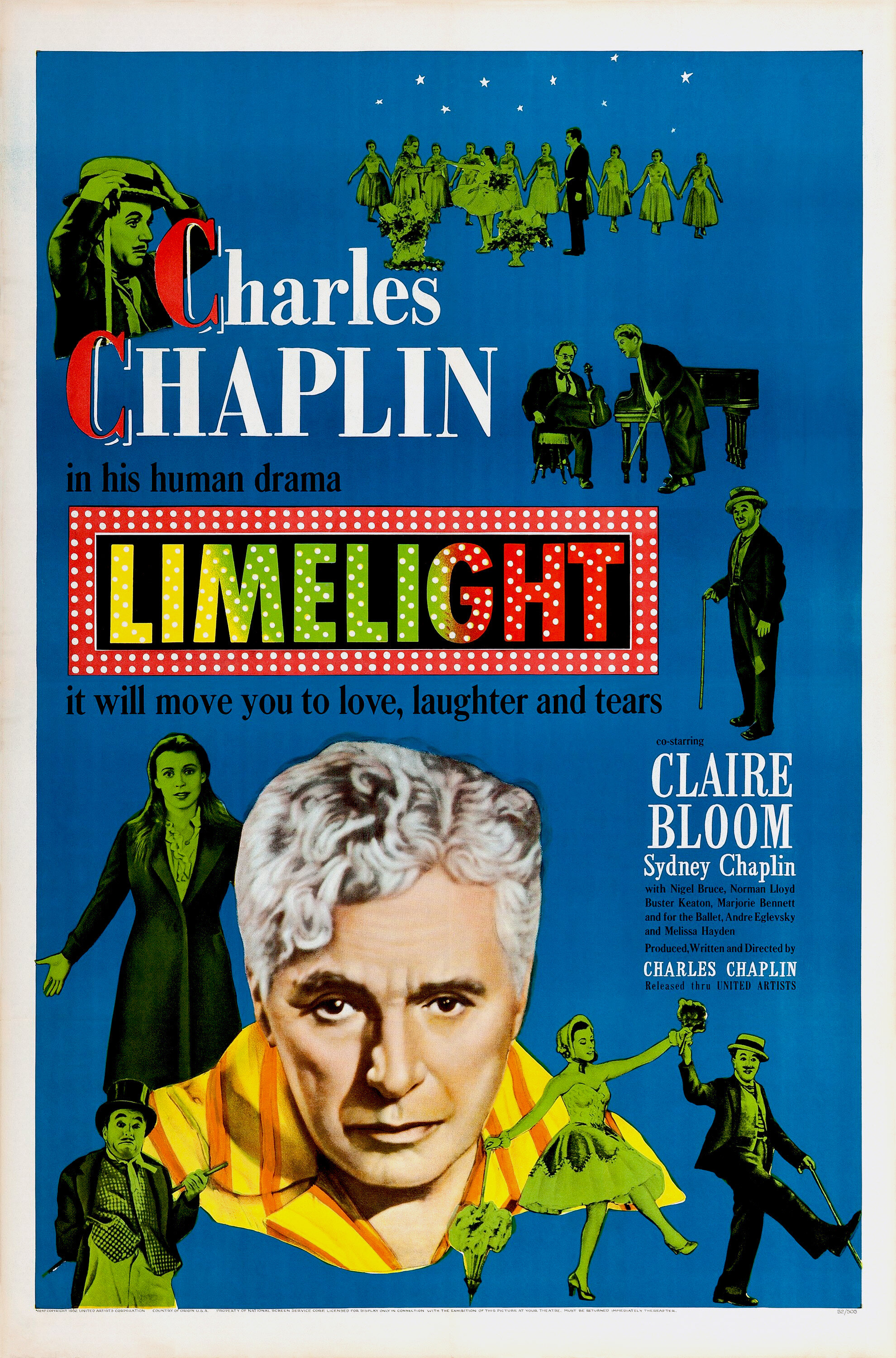Director: Charles Chaplin
Cast: Charles Chaplin, Claire Bloom, Nigel Bruce, Buster Keaton
Have I Seen it Before: Sure. Hell, I predicated a few elements of some work I’ve done in years past on it.
Did I Like It: In the pantheon of late-period (read: talkie) Chaplin films, I’m tempted to say it resides in the middle of the pack. It isn’t the clever deconstruction of his previous work, like Modern Times (1936)*. It isn’t the resounding, moral, and political satire that is The Great Dictator (1940). It isn’t the absolutely nihilistic black comedy of Monsieur Verdoux (1947)**.
But it is fascinating.
The immediate read of the film is to view it as the most autobiographical of Chaplin’s work. Chaplin himself rejected that interpretation as shallow and fundamentally wrong, and I tend to agree for the most part. The tale of an intermittently successful stage comedian down on his luck is not his story. Even in exile, there was hardly a soul who would claim he wasn’t the top film comedian of his or any other age. The thought that Calvero is an analogue for the largely absent Charles Chaplin Sr. is easy to see. The sometimes inadequate love he has for the fragile and occasionally self-destructive Terry (Bloom) has a clear connection to Chaplin’s poor mother.
That being said, it’s hard not to look at Terry and also see just a bit of Oona in her as well. Is this film a quiet confession that he thought his final wife might have been happier with a younger man? Hard to say, but trying to read that much into the film is probably missing the point. How many times were you going to get an opportunity to see Chaplin and Buster Keaton share the screen?
*A hybrid talkie, to be sure, but definitely Chaplin’s first, begrudging step into the technological standard of film from then on.
**A challenging films to watch and, for that matter, spell. If I didn’t have to do it several dozen times in a previous work, I may never have gotten the hang of it without having to look it up.

